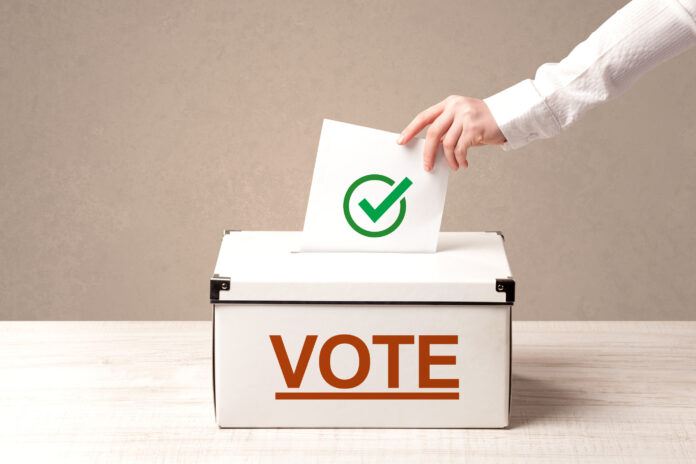(The Center Square) – UNC Mobile One Card, a digital photo identification on the Chapel Hill campus of the University of North Carolina, will not be valid in North Carolina’s elections.
A temporary injunction was granted Friday afternoon by the North Carolina Court of Appeals, scoring a victory for Republicans at the state and national level against the State Board of Elections. The decision stays last week’s order by Judge Keith Gregory in Wake County Superior Court.
“Two battleground state wins for election integrity in one afternoon,” wrote Republican National Committee Chairman Michael Whatley on social media, referring also to a win in Michigan. “This is just common sense. We refuse to give an inch when it comes to protecting Voter ID!”
The lawsuit was the seventh against the state board in 52 days when filed, four of which were in a three-week blitz by the Grand Old Party. According to an affidavit filed in the case, a 22-year-old used two free apps from Apple – Superimpose+ and Walletsmith – to forge a digital ID for UNC Chapel Hill. While it took him less than an hour, he said now knowing how would make the process much quicker.
State law, says plaintiffs, only allows ID in physical form. Gregory in his ruling had said for Carolina students to get the mobile ID, a valid form of photo identification is needed.
The state’s voters have multiple options to include military or veterans photo ID card issued by the U.S. government; ID card with photo issued by the U.S. or North Carolina government for a public assistance program; tribal enrollment card with photo issued by a tribe recognized by the state or federal government, which include the Cherokee-Eastern Band, Coharie, Haliwa-Saponi, Lumbee, Meherrin, Occaneechi-Saponi, Sappony and Waccamaw Siouan.
Additionally, there are 95 entities with approved student or government-employee photo IDs, or both.
Creating digital items, including through use of artificial intelligence, has been a subject of many polls this election cycle. A national poll from Elon University released in May said more than 3 in 4 Americans fear abuses of artificial intelligence will affect the 2024 presidential election, and many are not confident they can detect faked photos, videos or audio.
The state board was split in its decision. Chairman Alan Hirsch, Jeff Carmon and Siobhan Millan, all Democrats, voted for the mobile ID use; Republicans Stacy Eggers and Kevin Lewis were opposed. The board was named as defendants, along with Executive Director Karen Brinson Bell; plaintiffs were the North Carolina Republican Party and the Republican National Committee.
Absentee voting by mail is underway. Early in-person voting begins Oct. 17 and Election Day is Nov. 5. The voter registration deadline is Oct. 11, though same-day registration is available. Absentee ballots can be requested through Oct. 29.
Whatley, on the litigation win in Michigan, wrote, “Clerks were counting mail ballots without proof of signature verification, opening the door to fraud. The @GOP sued. Result? Ballots will now only be counted after proof that signatures are verified – a key win.”
North Carolina has more than 7.6 million registered voters, according to State Board of Elections data through Saturday. It is among the seven consensus battleground states representing 93 electoral college votes. The breakdown is Pennsylvania 19, North Carolina 16, Georgia 16, Michigan 15, Arizona 11, Wisconsin 10 and Nevada six.




